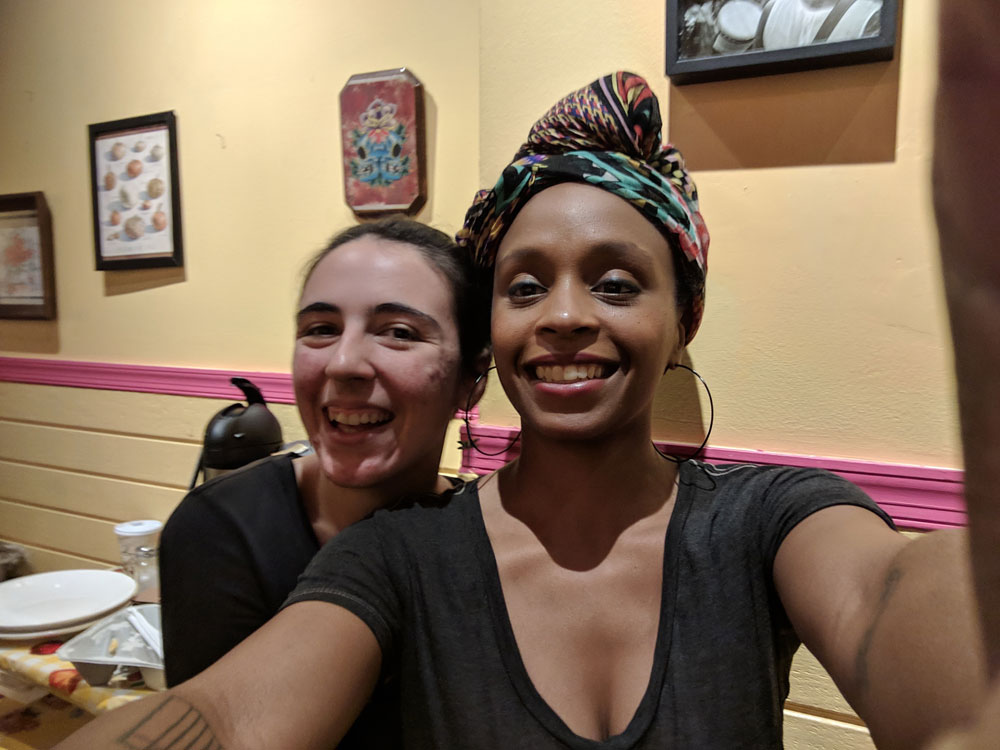
June 24, 2019; Eater
Worker co-ops, notes Melissa Hoover, who directs the nonprofit Democracy at Work Institute, tells Monica Burton in Eater that while co-ops can be found in many sectors, they tend to do best in industries that rely on teamwork and where there is a “values driver” of some kind. Hoover elaborates:
If they want to do ethical or sustainable farming; if they want to work on renewable energy; if they care for children or elders. If there’s something that says we should do this in a humane or human-centered way, they often come to cooperatives because it enacts their values across-the-board and it dovetails with the work they’re trying to do.
As Burton notes, both the team factor and the values driver can be true of restaurant work.
The idea of a worker co-op restaurant or pub is not new. In the San Francisco Bay Area, the Arizmendi Bakery cooperative network has operated since 1997—and Berkeley’s Cheese Board collective, which gave rise to Arizmendi, has been in business since 1971. In Athens, Ohio, the Casa Nueva worker-owned restaurant opened in 1985. In Austin, Texas, the Black Star brew pub co-op launched back in 2006.
But the co-op model, writes Burton, “feels newly relevant to young people working in the industry as a way to combat traditional structures that have often allowed abuse to persist. Their notion is that the cooperative structure makes restaurants healthier places to work.”
Sign up for our free newsletters
Subscribe to NPQ's newsletters to have our top stories delivered directly to your inbox.
By signing up, you agree to our privacy policy and terms of use, and to receive messages from NPQ and our partners.
One place that Burton profiles is 1149, a restaurant that opened about four months ago in the South Philly neighborhood of Philadelphia and which seeks to be a “restaurant, events space, and art gallery” combined. The co-op was cofounded by Ailbhe Pascal, a baker, and Jena Harris, a caterer. After working together for a few years, they decided to launch the co-op. “Both of us, having aligned missions, found collaborating exciting and fruitful,” explains Pascal.
Pascal explains that 1149 has sought to hire people of color, people with disabilities, immigrants, women, and queer and trans people. “For me, co-ops came out of brown people needing to cooperate to survive. It’s not like, to be accessible to people of color, we then created this thing. It’s actually from experiences of necessity.”
For Pascal, the co-op structure makes restaurant work sustainable. “I don’t need a whole restaurant all seven days, all of those hours. That’s not humanly possible, that’s not what I want.” Pascal explains to Burton that in a co-op, people can work the hours that make sense for them within a group where everyone has an equal stake in making the business succeed.
Burton also profiles Marco Zappia, who is beverage director at two Minneapolis restaurants—Colita in South Minneapolis and at Martina in Linden Hills. For Zappia, the idea of forming “a bartender-owned, bartender-run cooperative,” remains an aspiration, not a present-day reality, but in coordinating the two restaurants’ 20 bartenders, he seeks to do what he can to implement the practices and philosophy that he hopes to adopt in that future cooperative, including open book management (sharing financial information with staff), transparent scheduling practices, and instilling “a culture that’s built off empathy and vulnerability.”
Zappia, like Pascal, sees cooperatives as a way to avoid the burnout that is endemic to the field. “Can you really bartend five nights a week and be happy and healthy? Probably not,” Zappia says. While the conventional view extols the creative role of the sole entrepreneur, Zappia believes that a co-op would actually facilitate innovation. In a co-op, Zappia contends, “it’s much easier to achieve tangible growth quickly and sustainably versus drowning as a sole entrepreneur.”—Steve Dubb













